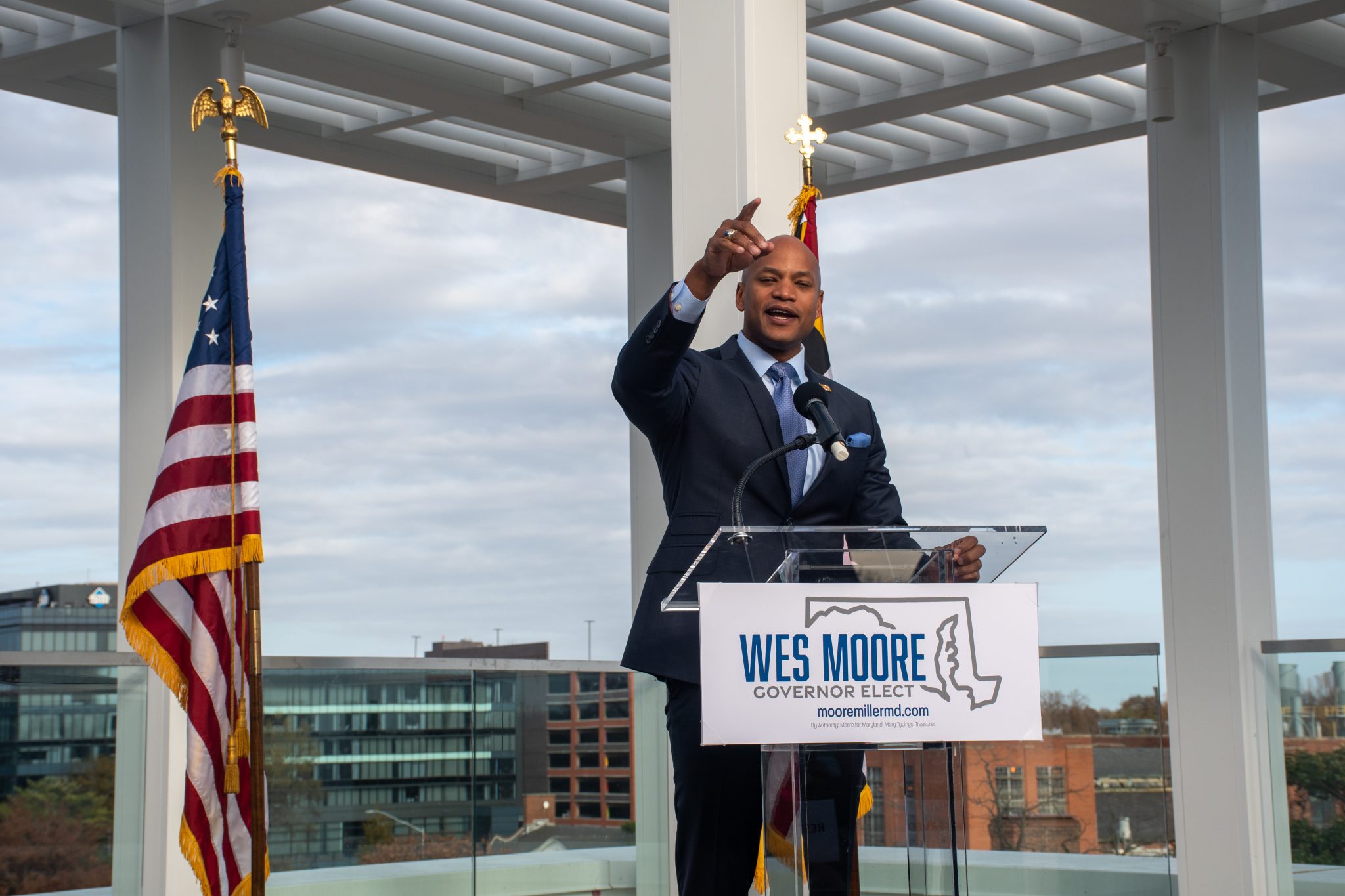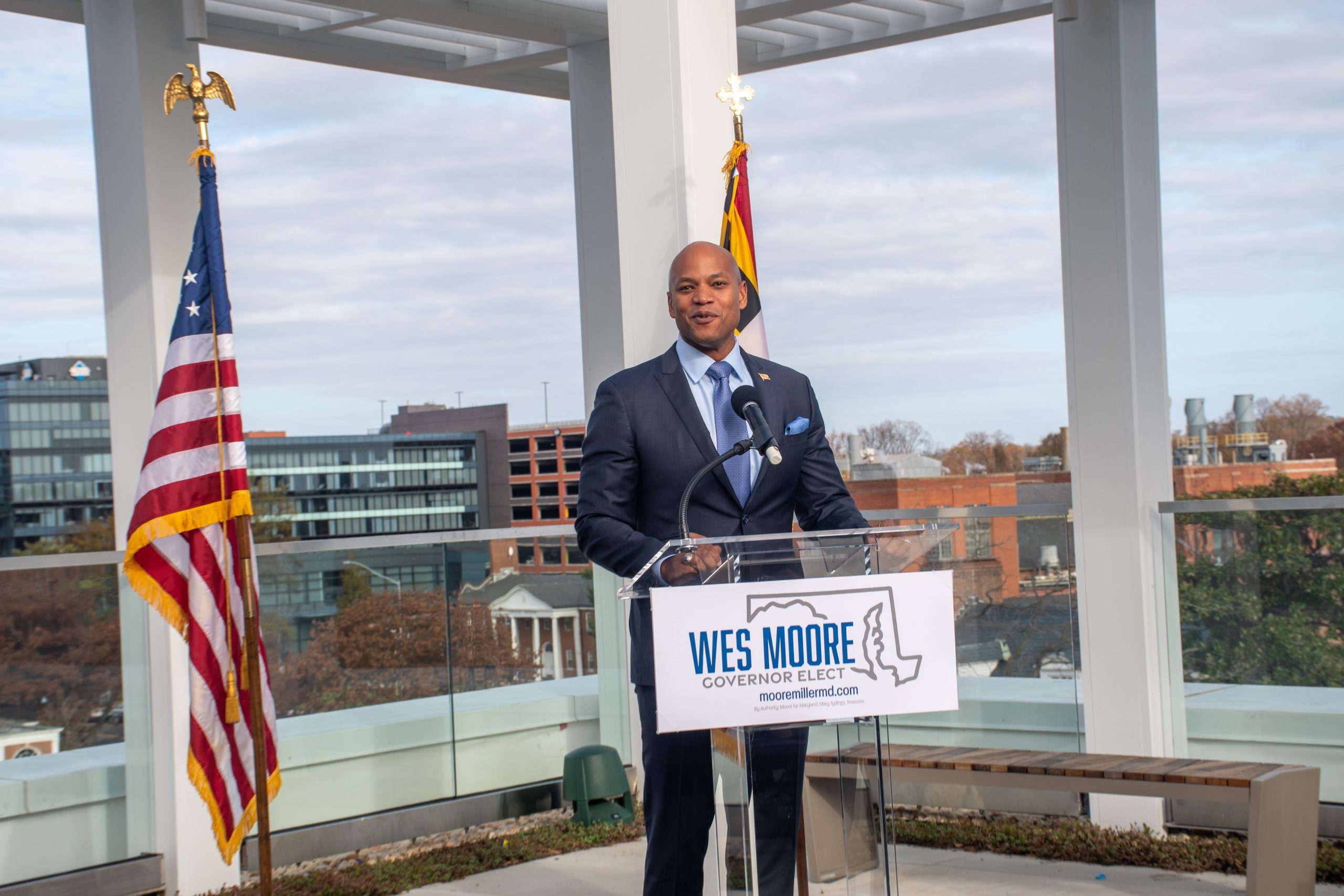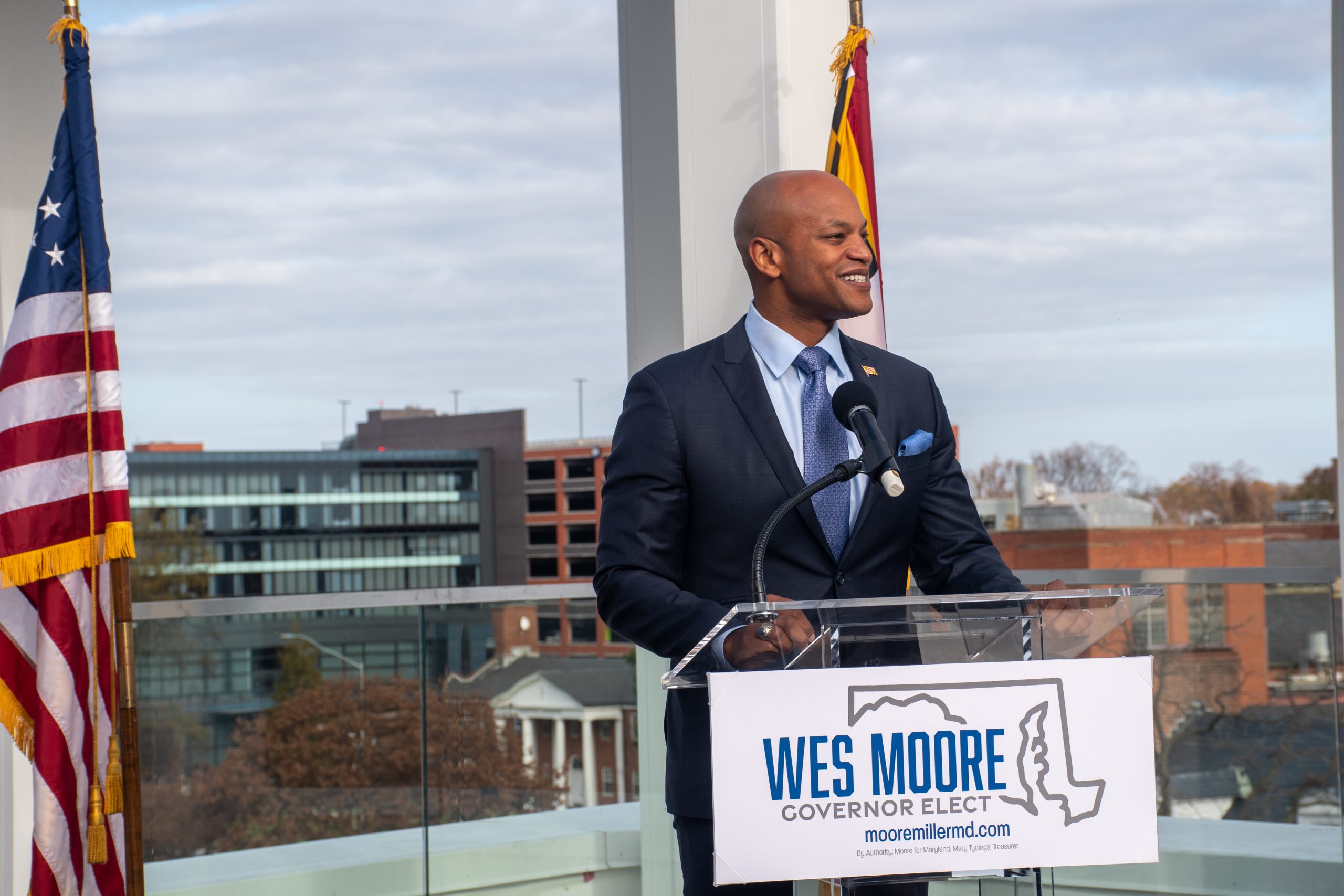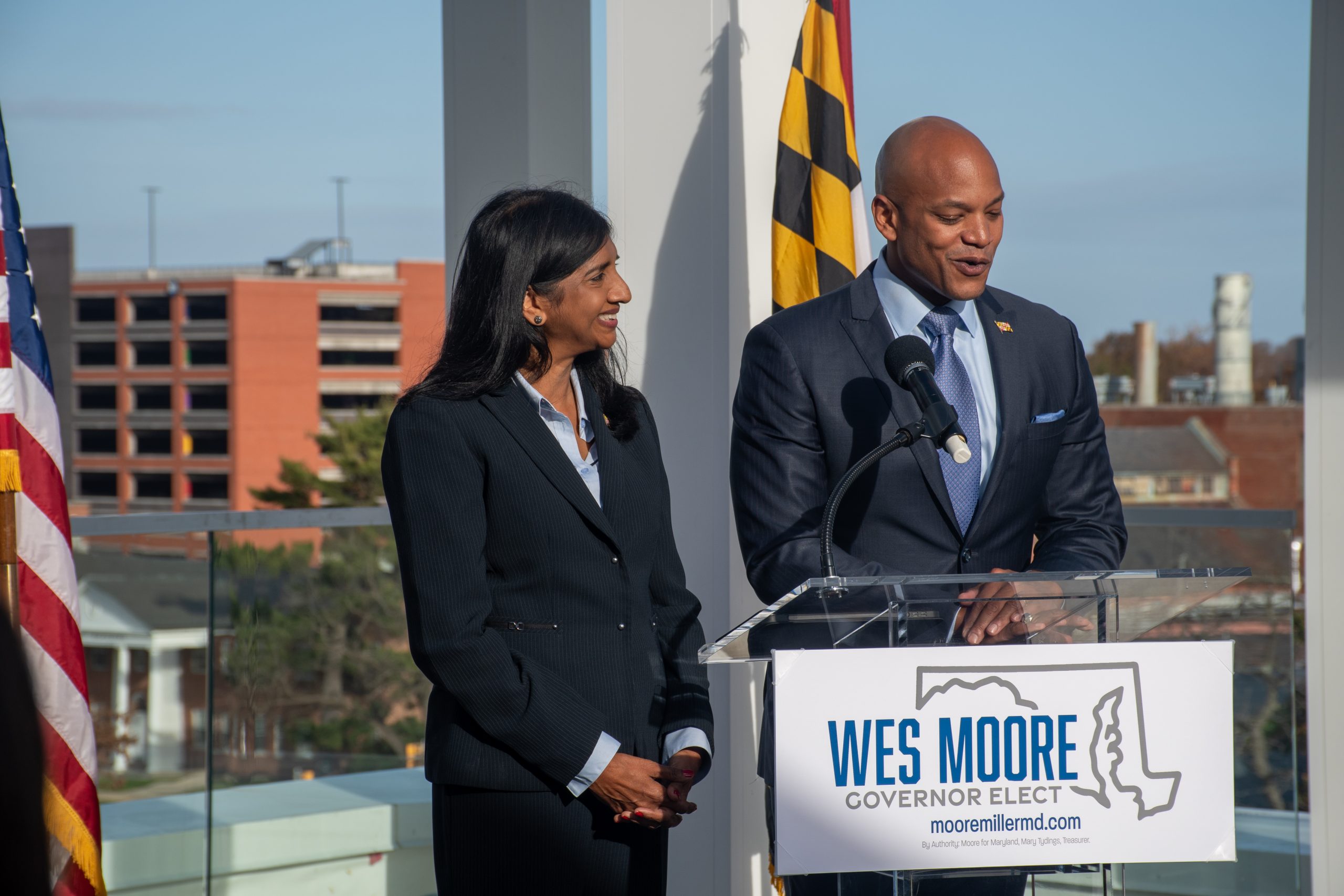Maryland Governor-elect Wes Moore on Thursday discussed his gubernatorial transition priorities and team at the University of Maryland public policy building.
Ken Ulman, a former Howard County Executive and the president of the Terrapin Development Company, will serve as a co-chair of Moore’s transition team.
Prince George’s County Executive Angela Alsobrooks will also be a co-chair. Alsobrooks will bring great leadership to the team across the next two months, lieutenant governor-elect Aruna Miller said. Alsobrooks endorsed Moore for governor in March.
“She’s committed to the state of Maryland,” Miller said. “She has taken Prince George’s County to the highest of elevation.”
Cleo Hirsch, the former executive director of COVID-19 response for Baltimore City Public Schools, will be the transition team’s executive director. Moore’s campaign treasurer Mary Tydings and Downtown Partnership of Baltimore president Shelonda Stokes will also be co-chairs.
The event came two days after Moore’s historic election win on Tuesday, where he became the first elected Black governor in Maryland and the third in the United States. The transition team, which includes local officials, will help prepare Moore’s administration ahead of his inauguration on Jan. 18.
The transition team and nine policy committees will guide decision-making before Moore takes office. In the next two months, the future administration will work to actualize its policies on sweeping education reform and service year options for high school graduates – two campaign cornerstones.
[Democrat Wes Moore will be Maryland’s next governor]
Moore also discussed how his priorities for the transition will translate into his administration’s ability to hit the ground running when the Maryland General Assembly reconvenes in January.
“The people have spoken, and the people are saying that we want to have a state that is going to move fast. We want to have a state that is going to be thoughtful, we want to have a state that’s going to be bold,” Moore said.
Public policy students at this university attended Moore’s press conference Thursday, where he credited young people for believing in his campaign before any other Marylanders did.
During the transition process, Moore and Miller will provide avenues for young people to engage with the policy committees and shape administrative priorities, Moore said.
Having a transition team that represents Maryland’s geographic and racial diversity, as well as the input from the state’s younger generation, will lead the future administration to fulfill its campaign promise of leaving no Marylander behind, Moore said.
“We want to ensure that students and young people and young at heart people are gonna be involved in our administration that there will be opportunities,” Moore said. “This is going to be an administration that is going to be inclusive.”






